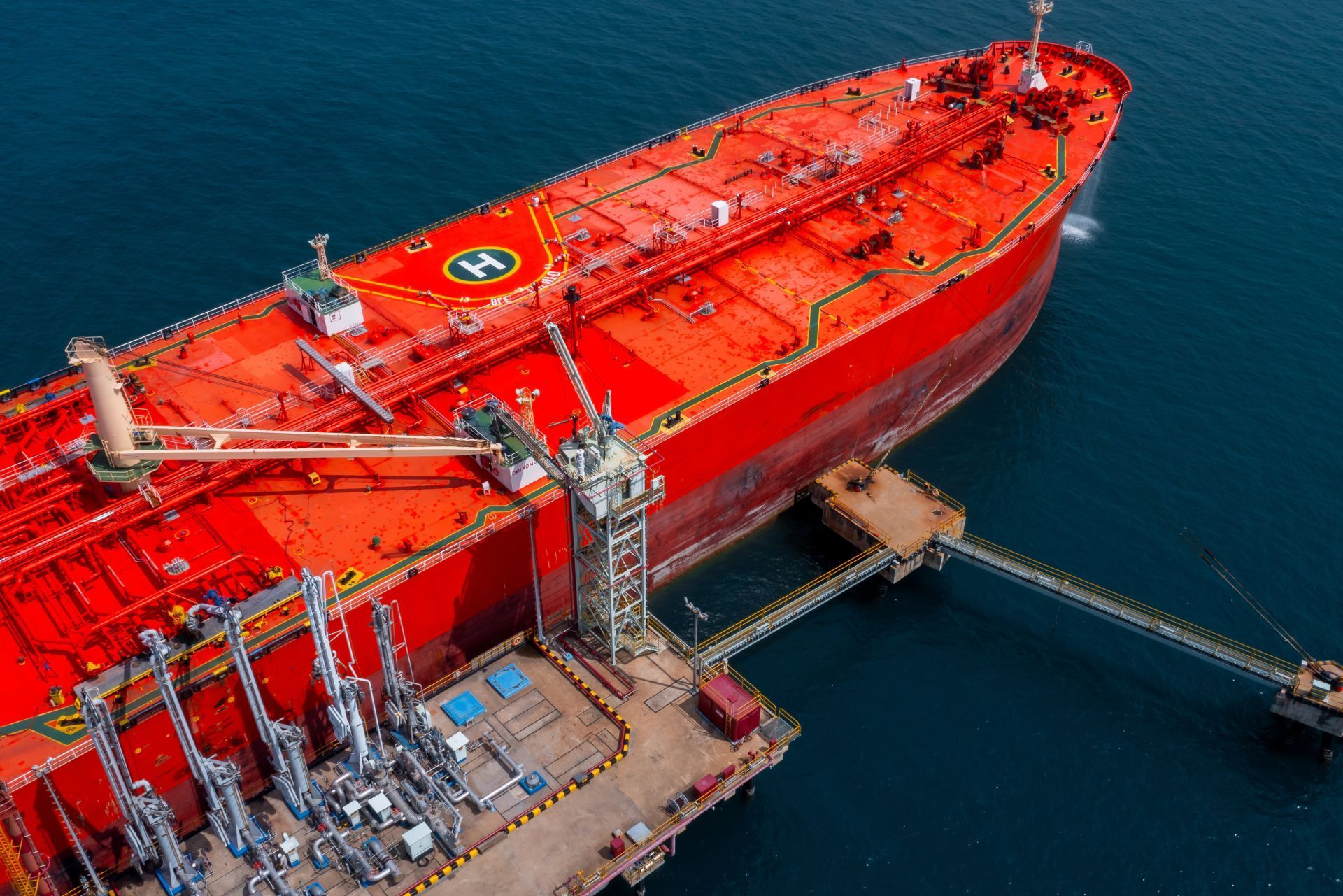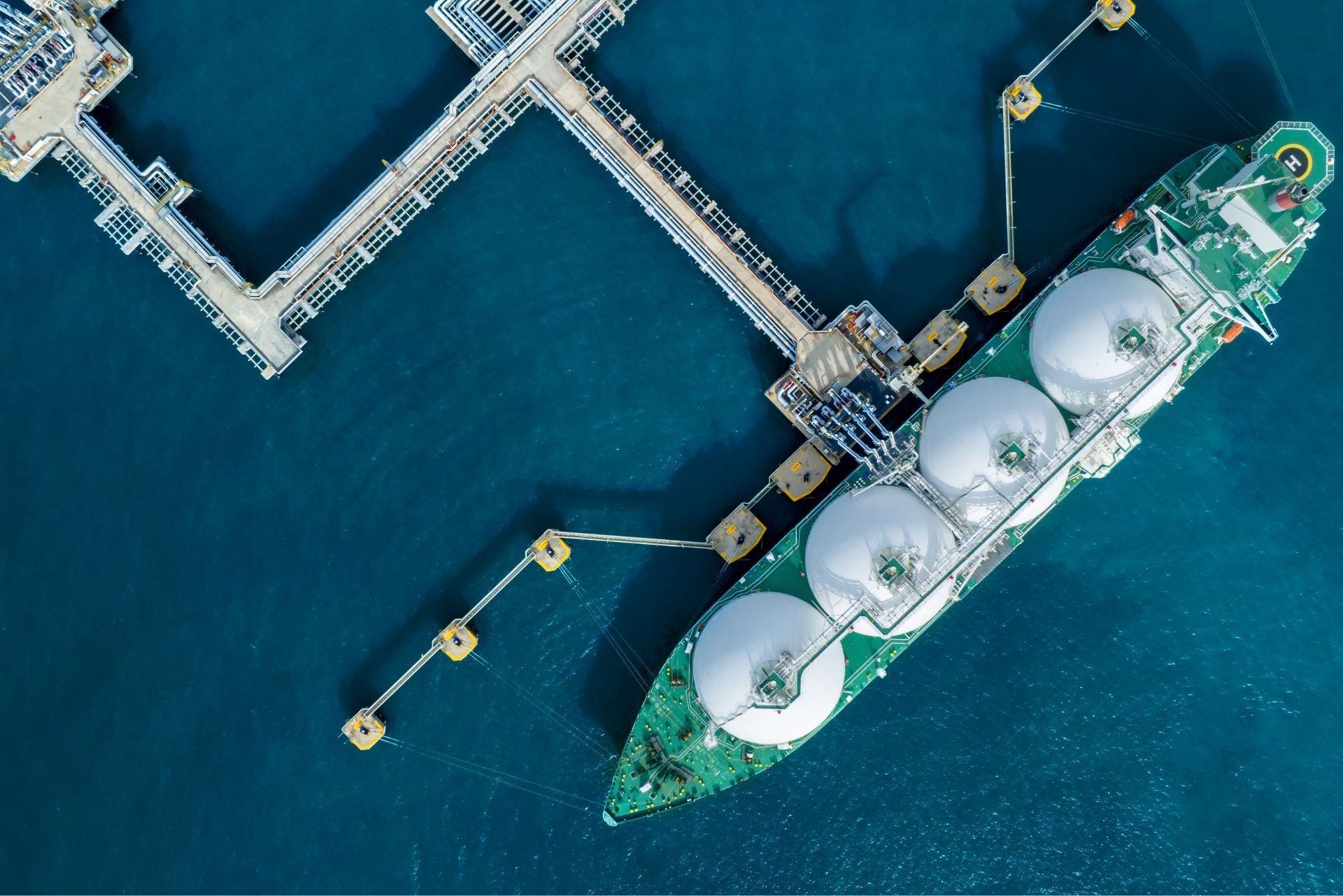Top 3 Recommended Policies

In the high-stakes world of oil, gas, and energy logistics, cargo insurance is not just a safety net—it’s a critical component of risk management. With billions of dollars’ worth of assets moving across the globe by sea, the stakes have never been higher. In 2023 alone, global marine insurance premiums surged to USD 33 billion, reflecting a 6.4% increase from the previous year, underscoring the growing importance and complexity of insuring maritime cargo in this sector. Beinsure’s report highlights these trends, which are driven by evolving risks and market dynamics.
This comprehensive guide explores everything businesses in oil, gas, and energy need to know about cargo insurance—from the unique risks they face to the latest industry developments shaping coverage and premiums. Understanding these factors is essential for protecting valuable shipments and ensuring continuity in a volatile market.
Understanding the Unique Risks in Oil, Gas, and Energy Cargo Transport
Transporting oil, gas, and energy-related cargo by sea involves navigating a complex risk landscape. These goods are often highly valuable, hazardous, and subject to geopolitical tensions, making insurance coverage both essential and challenging.
One of the most significant risks is environmental damage and pollution. Loren Henry, VP of Jencap’s Environmental & Energy Practice, points out that environmental risks are becoming increasingly difficult and expensive to insure. Pollution claims are on the rise, prompting insurers to exclude pollution coverage from standard energy insurance policies. This development creates coverage gaps that companies must address proactively to avoid costly liabilities. Jencap’s insights shed light on this evolving challenge.
Additionally, geopolitical instability can dramatically affect insurance costs and availability. A recent example is the near doubling of insurance costs for ships navigating the Red Sea following a Houthi attack on the Greek-flagged Sounion tanker in August 2024. The tanker was carrying one million barrels of crude oil and suffered an oil leak, highlighting the heightened risks in conflict-prone regions. This incident, reported by Reuters, illustrates how quickly insurance premiums can spike in response to real-world events.
Fire, Explosion, and Machinery Risks
Fire and explosion represent significant hazards in marine cargo insurance for energy businesses. An analysis of over 244,000 insurance claims between 2017 and 2021, valued at approximately €9.2 billion, revealed that fire and explosion accounted for 18% of the total value of marine claims during that period. This statistic underscores the importance of specialized coverage tailored to these risks. Beinsure’s study provides a detailed look at these claim patterns.
Moreover, machinery damage or failure is a leading cause of shipping incidents globally, accounting for over half of all such events according to Allianz Commercial’s annual Safety and Shipping Review 2024. This risk is particularly relevant for oil and gas shipments, where specialized equipment and vessels are used. Proper insurance coverage must address these operational vulnerabilities to mitigate financial losses.
In addition to machinery risks, the human factor plays a crucial role in the safety of energy cargo transport. Crew training and operational protocols are essential in preventing accidents and ensuring compliance with safety regulations. A lack of proper training can lead to human error, which is often cited as a contributing factor in maritime incidents. This emphasizes the need for comprehensive risk management strategies that include not only insurance but also robust training programs and safety audits to minimize the likelihood of incidents at sea.
Furthermore, the evolving landscape of climate change poses additional challenges for the energy transport sector. As extreme weather events become more frequent, shipping routes may be affected, leading to delays and increased costs. Insurers are beginning to factor in climate-related risks when underwriting policies, which may further complicate the insurance landscape for energy companies. Understanding these emerging risks is vital for businesses to adapt and ensure their operations remain sustainable and profitable in an ever-changing environment.

Why Cargo Insurance is Crucial for Oil, Gas, and Energy Businesses
The oil, gas, and energy sectors operate with high-value cargoes that are often irreplaceable or extremely costly to replace. Cargo insurance provides financial protection against losses resulting from damage, theft, or delays during transit. Given the scale of global seaborne trade—10.99 billion tons of cargo in 2021 alone—ensuring these shipments are adequately covered is vital for business continuity and risk management. Freight Insurance Coverage highlights the vast scale of maritime cargo movement, emphasizing the need for robust insurance solutions.
Beyond protecting physical assets, cargo insurance helps businesses manage liabilities arising from environmental damage or accidents. With increasing regulatory scrutiny and environmental concerns, companies face growing exposure to pollution claims and related costs. This is compounded by the fact that insurers are tightening their policies, often carving pollution risks out of standard coverage. Without adequate insurance, companies may face significant out-of-pocket expenses.
Addressing Underinsurance and Coverage Gaps
As oil and gas prices rise, so do the values of assets in transit, making underinsurance a real threat. Peter Hall, Partner and Head of Cargo & Logistics at Lockton, stresses the importance of regularly reviewing insurance policies to ensure they reflect current asset values and risk exposures. Failure to do so can leave businesses vulnerable to substantial financial shortfalls in the event of a claim. Lockton’s expert advice highlights this critical aspect of cargo insurance management.
Coverage gaps may also arise due to exclusions related to environmental risks or geopolitical events. Businesses must work closely with insurers to negotiate terms that provide comprehensive protection tailored to their specific operational contexts. For instance, fluctuations in political stability in oil-rich regions can lead to increased risks of cargo theft or damage, necessitating specialized coverage options. Additionally, the rise of cyber threats in logistics and supply chain management has prompted insurers to develop policies that address these modern vulnerabilities, ensuring that businesses are not left exposed to the evolving landscape of risks.
Moreover, the complexity of international regulations surrounding oil, gas, and energy transportation can create further challenges. Different countries have varying legal requirements and standards for cargo insurance, which can complicate compliance for multinational operations. Companies must stay informed about these regulations to avoid potential fines and ensure seamless operations across borders. Engaging with experienced insurance brokers who understand the nuances of the industry can provide invaluable support in navigating these complexities, ensuring that businesses not only meet legal obligations but also secure the most advantageous coverage for their specific needs.
Current Trends and Market Developments in Marine Cargo Insurance
The marine insurance market is evolving rapidly, influenced by technological advancements, regulatory changes, and shifting risk profiles. In 2023, global premiums in the Offshore Energy market reached USD 4.6 billion, marking a 4.6% increase from 2022. The UK markets play a dominant role, accounting for significant shares of this premium pool. These figures, reported by the International Union of Marine Insurance (IUMI), reflect sustained growth and heightened risk awareness in the sector. IUMI’s report offers detailed insights into these market dynamics.
Insurers are increasingly adopting more granular risk assessments and leveraging data analytics to price policies more accurately. However, the tightening of coverage for environmental risks and the impact of geopolitical events like the Red Sea attack indicate that premiums are likely to remain volatile.
Impact of Environmental and Geopolitical Risks on Premiums
Environmental risks, particularly pollution, are reshaping the insurance landscape. The rise in pollution claims has led insurers to exclude such risks from many standard policies, forcing companies to seek specialized endorsements or separate coverage. This shift increases costs and complicates risk management strategies. As businesses strive to comply with stricter environmental regulations, they are also investing in sustainable practices and technologies, which can mitigate risk but may require significant upfront costs. Insurers are now more inclined to offer incentives for companies that demonstrate proactive environmental stewardship, creating a new dynamic in policy negotiations.
Geopolitical tensions, such as conflicts in key shipping routes, also drive premium increases and coverage restrictions. The near doubling of insurance costs for vessels passing through the Red Sea after the August 2024 tanker attack is a stark example. Such incidents highlight the need for dynamic insurance strategies that can adapt to emerging threats. Moreover, as the global economy becomes increasingly interconnected, disruptions in one region can have ripple effects across the entire supply chain. This interconnectedness necessitates a comprehensive approach to risk assessment, where insurers must consider not only the immediate threats but also the broader geopolitical landscape. Companies are now looking for insurance partners that can provide not only coverage but also insights into risk mitigation strategies that address these complex challenges.
Best Practices for Securing Effective Cargo Insurance
Given the complexity and high stakes involved, oil, gas, and energy businesses should adopt a strategic approach to cargo insurance. This includes:
- Comprehensive Risk Assessment: Understanding the full spectrum of risks—environmental, operational, geopolitical—is essential to tailor coverage effectively.
- Regular Policy Reviews: As asset values and market conditions change, insurance policies must be updated to avoid underinsurance and gaps.
- Engagement with Specialized Brokers: Working with brokers who understand the nuances of the energy sector can help secure optimal terms and coverage.
- Consideration of Environmental Liability Coverage: Given the increasing exclusion of pollution risks, specialized policies or endorsements should be explored.
- Monitoring Market Developments: Staying informed about geopolitical events and insurance market trends enables proactive risk management.
By following these practices, companies can better protect their cargo, manage liabilities, and maintain operational resilience in a challenging environment.
In addition to these foundational practices, businesses should also prioritize training and education for their teams. Understanding the intricacies of cargo insurance and the specific risks associated with the energy sector can empower employees to make informed decisions and recognize potential vulnerabilities. Regular workshops and seminars led by industry experts can enhance knowledge and foster a culture of risk awareness within the organization.
Moreover, leveraging technology can significantly improve the management of cargo insurance. Advanced data analytics and risk modeling tools can provide insights into potential loss scenarios, allowing companies to simulate various situations and assess their insurance needs accordingly. By integrating these technological solutions, businesses can not only streamline their insurance processes but also enhance their overall risk management strategies, ensuring they are well-prepared for any eventualities that may arise during transportation and storage of their valuable cargo.

Conclusion: Navigating the Future of Cargo Insurance in Energy Logistics
Marine cargo insurance for oil, gas, and energy businesses is more critical than ever. With rising premiums, evolving risks, and increasing regulatory pressures, companies must be vigilant in managing their insurance portfolios. The growth in global marine insurance premiums to USD 33 billion in 2023 and the significant rise in offshore energy market premiums reflect a market responding to these challenges. Beinsure’s data underscores the scale and importance of this sector.
Environmental risks and geopolitical tensions will continue to shape the insurance landscape, requiring businesses to adapt their strategies accordingly. Regular policy reviews, comprehensive risk assessments, and specialized coverage are key to safeguarding valuable cargo and ensuring business continuity.
In an industry where a single incident can lead to multi-million dollar losses, cargo insurance is not just a formality—it is a strategic imperative for every oil, gas, and energy business operating in the global maritime arena.
Contact Us
Phone
Location
9595 Six Pines Dr, Suite 8210, The Woodlands, TX 77380

